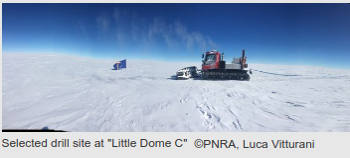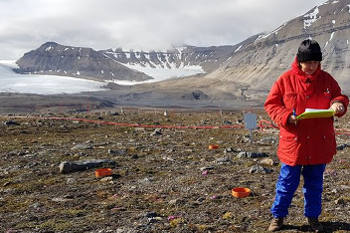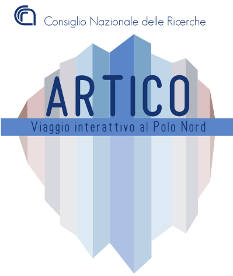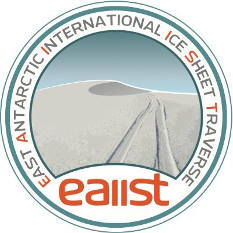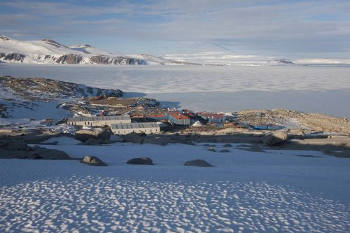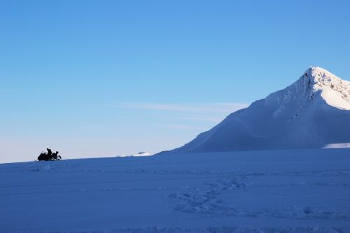EXPIRED
Avviso di selezione n° ISP-BR-01-2025-BO, prot. 51685 del 21-02-2025, scadenza 13 Marzo 2025
PUBBLICA SELEZIONE PER IL CONFERIMENTO DI N. 2 BORSE DI RICERCA PER LAUREATI PER RICERCHE NEL CAMPO DELL’AREA SCIENTIFICA “SCIENZE DEL SISTEMA TERRA E TECNOLOGIE PER L’AMBIENTE” NELL’AMBITO DEL PROGETTO Source-to-sink: effetti della fusione del permafrost sulloceano artico-JRC Eni-CNR (CUP B24I19000530003), DA USUFRUIRSI PRESSO LA SEDE SECONDARIA DI BOLOGNA DELL’ISTITUTO DI SCIENZE POLARI (CNR-ISP) GU n.15 del 21-02-2025
SCARICA IL BANDO
Avviso di selezione n° ISP-AR05-2024-VE, prot. 488734, PROROGA scadenza 13 Gennaio 2025 10 FEBBRAIO 2025
Pubblica selezione per il conferimento di n° 1 assegno per lo svolgimento di attività di ricerca nell’ambito del programma di ricerca Autonomous Multi-Format In-Situ Observation Platform for Atmospheric Carbon Dioxide and Methane Monitoring in Permafrost & Wetlands - MISO, finanziato dalla European Research Executive Agency (REA), programma HORIZON-CL6-2022-GOVERNANCE-01 (CUP: B73C22001870006), da svolgersi presso l’Istituto di Scienze Polari (CNR-ISP), Sede di Venezia Mestre.
Tipologia di Assegno: C) Assegno Senior - PROROGA SCADENZA 10 FEBBRAIO 2025
SCARICA IL BANDO
Avviso di selezione n° ISP-AR04-2024-BO, prot. 497319, scadenza 17 Gennaio 2025
Pubblica selezione per il conferimento di n° 1 assegno per lo svolgimento di attività di ricerca nell’ambito del programma di ricerca DTA.AD001.376 Funzionamento e supporto Base artica Italiana Dirigibile Italia - Isole Svalbard (Norvegia), da svolgersi presso l’Istituto di Scienze Polari (CNR-ISP) – CUP B13C24004800001.
Tipologia di Assegno: A) Assegno Professionalizzante
SCARICA IL BANDO
GRADUATORIA
Avviso di selezione n° ISP-AR04-2024-VE, prot. 440082, scadenza 2 Dicembre 2024
Pubblica selezione per il conferimento di n° 1 assegno per lo svolgimento di attività di ricerca nell’ambito del programma di ricerca PRIN 2022 Prot. MUR 2022CCRN7R 2022NEWP4J_PE10_PRIN2022 Disentangling mechanisms controlling atmospheric transport and mixing processes over mountain areas at different space-and timescales – DECIPHER, CUP: B53D23007350006, da svolgersi presso l’Istituto di Scienze Polari (CNR-ISP) -Sede di Venezia - Mestre.
Tipologia di Assegno: A) Assegno Professionalizzante
SCARICA IL BANDO
GRADUATORIA
Avviso di selezione n° ISP-AR03-2024-BO, prot. 300057, scadenza 20 Settembre 2024
Pubblica selezione per il conferimento di n° 1 assegno per lo svolgimento di attività di ricerca nell’ambito del programma di ricerca DTA.AD001.376 Funzionamento e supporto Base artica Italiana Dirigibile Italia - Isole Svalbard (Norvegia), da svolgersi presso l’Istituto di Scienze Polari (CNR-ISP) – CUP B13C24002920001.
Tipologia di Assegno: A) Assegno Professionalizzante
SCARICA IL BANDO
GRADUATORIA
Avviso di selezione n° ISP-AR03-2024-VE, prot. 288058, scadenza 30 Agosto 2024
Pubblica selezione per il conferimento di n° 1 assegno per lo svolgimento di attività di ricerca nell’ambito del programma di ricerca Horizon 2020 Beyond EPICA Oldest Ice Core: 1,5 Myr of greenhouse gas – climate feedbacks GA no. 815384 - CUP: B94I19000550006, da svolgersi presso l’Istituto di Scienze Polari (CNR-ISP) Sede di Venezia Mestre.
Tipologia di Assegno: C) Assegno Senior
SCARICA IL BANDO
GRADUATORIA
Avviso di selezione n° ISP-AR02-2024-BO-PRIN2022, prot. 288729, scadenza 2 Settembre 2024
Pubblica selezione per il conferimento di n° 1 assegno Post Dottorale per lo svolgimento di attività di ricerca nell’ambito del programma di ricerca PRIN 2022 Prot. MUR 2022CCRN7R ATlantificaTion dRiven by polAr-subpolar ConnecTIONs (ATTRACTION) in a changing climate: integrating observational evidence, paleo-oceanography and modelling over the last thousand years at the gateway of the Arctic Ocean - CUP B53D23007040006, da svolgersi presso l’Istituto di Scienze Polari (CNR-ISP) Sede secondaria di Bologna.
Tipologia di Assegno: B) Assegno Post Dottorale
SCARICA IL BANDO
GRADUATORIA
Avviso di selezione n° ISP-AR02-2024-VE, prot. 287901, scadenza 2 Settembre 2024
Pubblica selezione per il conferimento di n° 1 assegno per lo svolgimento di attività di ricerca nell’ambito del programma di ricerca Horizon Europe Permafrost-Pollution-Health (ILLUQ) - Grant Agreement no. 101133587 - CUP B83C23007520006, da svolgersi presso l’Istituto di Scienze Polari (CNR-ISP) Sede di Venezia Mestre.
Tipologia di Assegno: A) Assegno Professionalizzante
SCARICA IL BANDO
GRADUATORIA
Avviso di selezione n° ISP-AR01-2024-VE-PRIN2022PNRR, prot. 287896, scadenza 2 Settembre 2024
Pubblica selezione per il conferimento di n° 1 assegno Post Dottorale per lo svolgimento di attività di ricerca nell’ambito del programma di ricerca Paleofire RecOnstruction from MEditerranean speleoTHEms USing trace organic compounds (PROMETHEUS) - CUP B53D23033450001 - finanziato dall’Unione europea – Next Generation EU in risposta al Bando PRIN 2022 PNRR di cui al DDG decreto direttoriale n. 1409 del 14-09-2022, - Macrosettore PE Physical Sciences and Engineering, settore PE10 Earth System Science, Cod. n. P20224E2HB, da svolgersi presso l’Istituto di Scienze Polari (CNR-ISP) Sede di Venezia Mestre.
Tipologia di Assegno: B) Assegno Post Dottorale
SCARICA IL BANDO
GRADUATORIA
Avviso di selezione n° ISP-BR-01-2024-BO, prot. 221491 del 27-06-2024, scadenza 15 Luglio 2024
PUBBLICA SELEZIONE PER IL CONFERIMENTO DI N. 2 BORSE DI RICERCA PER LAUREATI PER RICERCHE NEL CAMPO DELL’AREA SCIENTIFICA SCIENZE DEL SISTEMA TERRA E TECNOLOGIE PER L’AMBIENTE NELL’AMBITO DEL PROGETTO HORIZON-CL6-2023-ZEROPOLLUTION ICEBERG - INNOVATIVE COMMUNITY ENGAGEMENT FOR BUILDING EFFECTIVE RESILIENCE AND ARCTIC OCEAN POLLUTION-CONTROL GOVERNANCE IN THE CONTEXT OF CLIMATE CHANGE (CUP B63C23001840006), DA USUFRUIRSI PRESSO LA SEDE SECONDARIA DI BOLOGNA DELL’ISTITUTO DI SCIENZE POLARI (CNR-ISP)
G.U. n.51 del 25/06/2024 - SCARICA IL BANDO
GRADUATORIA
Avviso di selezione n° ISP-AR01-2024-ME-PRIN2022PNRR, scadenza 17 Giugno 2024
Pubblica selezione per il conferimento di n. 1 assegno per lo svolgimento di attività di ricerca nell’ambito del programma di ricerca KNOWhale – KNOwledge improvement for the conservation of endangered Mediterranean fin Whale in Southern Italy. – Finanziato dall’Unione europea – Next Generation EU in risposta al Bando PRIN 2022 PNRR di cui al DDG decreto direttoriale n. 1409 del 14 settembre 2022, Macrosettore LS Life Sciences settore LS8 -Environmental Biology, Ecology and Evolution, Prot. n. P2022N9958 – CUP B53D23023650001, da svolgersi presso l’Istituto di Scienze Polari (CNR-ISP) - Sede secondaria di Messina.
Tipologia di Assegno: B) Assegno Post Dottorale
SCARICA IL BANDO
GRADUATORIA
Avviso di selezione n° ISP-AR01-2024-BO-Prot 97037, scadenza 5 Aprile 2024
Pubblica selezione per il conferimento di n° 2 assegni per lo svolgimento di attività di ricerca nell’ambito del Programma di ricerca del Progetto HORIZON-CL6-2023 Innovative Community Engagement for Building Effective Resilience and Arctic ocean pollution-control Governance in the context of climate change (ICEBERG), da svolgersi presso il CNR-Istituto di Scienze Polari, sede di lavoro di Venezia Mestre e sede secondaria di Bologna (CUP B63C23001840006).
Tipologia di Assegno: A) Assegno Professionalizzante
SCARICA IL BANDO
GRADUATORIA
Avviso di selezione n° ISP-002-2023-MI-Prot 411771, scadenza 25 Gennaio 2024
Pubblica selezione per il conferimento di n° 1 assegno per lo svolgimento di attività di ricerca nell’ambito del progetto DTA.AD005.433 The Karakoram Lakes (Pakistan) Kar-Lakes (CUP:B43C23000770001) e del progetto DTA.AD001.460 Progetto autofinanziato Laghi Glaciali (CUP:B43C23000760001), per la seguente tematica Analisi di dati e immagini satellitari per lo studio dell’ambiente montano, da svolgersi presso il CNR-Istituto di Scienze Polari, Sede di Lavoro di Milano (Area della Ricerca 3, ARM3).
Tipologia di Assegno: A) Assegno Professionalizzante
SCARICA IL BANDO
Scarica esito
Avviso di selezione n° ISP-005-2023-VE-Prot 419949, scadenza 22 Gennaio 2024
Pubblica selezione per il conferimento di n° 1 assegno per lo svolgimento di attività di ricerca nell’ambito del Programma di ricerca Programma di Ricerche in Artico (PRA) (FOE 2022) - Progetto IADC (CUP B53C22008820001) e del Progetto autofinanziato DTA.AD004.579 STRUMENTAZIONE RADIOMETRICA A BANDA LARGA E SPETTRALE PER MISURE CARATTERISTICHE OTTICHE DELL'ATMOSFERA E DELLA SUPERFICIE NEVOSA (CUP B73C23001400001), da svolgersi presso il CNR-Istituto di Scienze Polari, Sede di Lavoro di Venezia Mestre.
Tipologia di Assegno: A) Assegno Professionalizzante
SCARICA IL BANDO
GRADUATORIA
Avviso di selezione n° ISP-004-2023-VE-Prot 419858, scadenza 15 Gennaio 2024
Pubblica selezione per il conferimento di n° 1 assegno per lo svolgimento di attività di ricerca nell’ambito del progetto DTA.AD001.376 FUNZIONAMENTO E SUPPORTO BASE ARTICA ITALIANA (CUP B13C23004850001), da svolgersi presso il CNR-Istituto di Scienze Polari, Sede di Lavoro di Venezia Mestre.
Tipologia di Assegno: A) Assegno Professionalizzante
SCARICA IL BANDO
GRADUATORIA
Avviso di selezione n° ISP-003-2023-VE-Prot 399936, scadenza 5 Gennaio 2024
Pubblica selezione per il conferimento di n° 1 assegno per lo svolgimento di attività di ricerca nell’ambito Progetto di ricerca PRR.AP005.003 NBFC Spoke 1, Codice CN_00000033 National Biodiversity Future Centre – NBFC - CUP B83C22002930006- Decreto Direttoriale MUR n. 1034 del 17/06/2022, da svolgersi presso il CNR-Istituto di Scienze Polari, Sede di Venezia Mestre.
Tipologia di Assegno: A) Assegno Professionalizzante
SCARICA IL BANDO
GRADUATORIA
Avviso di selezione n° ISP-004-2023-BO-Prot 400282, scadenza 31 Dicembre 2023
Pubblica selezione per il conferimento di n° 1 assegno per lo svolgimento di attività di ricerca nell’ambito del progetto PNRA19_00009 - oCean Atmosphere Interactions in the Antarctic regions and Convergence latitude (CAIAC) - CUP B93C21000050001.
Tipologia di Assegno: A) Assegno Professionalizzante
SCARICA IL BANDO
Provvedimento di annullamento
Avviso di selezione n° ISP-001-2023-RM-Prot 399916, scadenza 27 Dicembre 2023
Pubblica selezione per il conferimento di n° 1 assegno per lo svolgimento di attività di ricerca nell’ambito del progetto PRIN2022 (2022LSC4BR) - Rain-On-Snow (ROS) Events: how their composiTion influences snow properTies in the high Arctic (ROSETTA) – CUP: B53D23007240006, da svolgersi presso il CNR - Istituto di Scienze Polari - Sede Secondaria di Roma Montelibretti.
Tipologia di Assegno: A) Assegno Professionalizzante
SCARICA IL BANDO
GRADUATORIA
Avviso di selezione n° ISP-001-2023-ME-Prot 372966, scadenza 12 Dicembre 2023
Pubblica selezione per il conferimento di n° 1 assegno per lo svolgimento di attività di ricerca nell’ambito del Progetto PRIN 20225ERBRS – HALOVITA: anaerobic sulfur-respiring extreme halophilic archaea as model organisms for studying the criteria for a claim of active life detection - CUP B53D2301177 0006, da svolgersi prevalentemente presso l’Istituto di Scienze Polari Sede secondaria di Messina.
Tipologia di Assegno: A) Assegno Professionalizzante
SCARICA IL BANDO
GRADUATORIA
Avviso di selezione n° ISP-002-2023-VE-Prot 373073, scadenza 11 Dicembre 2023
Pubblica selezione per il conferimento di n° 1 assegno per lo svolgimento di attività di ricerca nell’ambito del progetto PRIN2022 (2022LSC4BR) - Rain-On-Snow (ROS) Events: how their composiTion influences snow properTies in the high Arctic (ROSETTA) – CUP:B53D23007240006, da svolgersi presso il CNR - Istituto di Scienze Polari - Sede di Venezia Mestre.
Tipologia di Assegno: A) Assegno Professionalizzante
SCARICA IL BANDO
ERRATA CORRIGE E INTEGRAZIONE
GRADUATORIA
Avviso di selezione n° ISP-001-2023-MI-Prot 370677, scadenza 11 Dicembre 2023
Pubblica selezione per il conferimento di n° 1 assegno per lo svolgimento di attività di ricerca nell’ambito del progetto PRIN 202283CF7 - Light-Absorbing ParticleS in the cryosphere and impact on water resourcEs (LAPSE) – CUP: B53D23006840006, da svolgersi presso il CNR-Istituto di Scienze Polari. Sede di Lavoro di Milano (Area della Ricerca 3, ARM3).
Tipologia di Assegno: B) Assegno Post Dottorale
SCARICA IL BANDO
GRADUATORIA
Avviso di selezione n° ISP-AR02-2023-BO, scadenza 1 Dicembre 2023
Pubblica selezione per il conferimento di n° 1 assegno per lo svolgimento di attività di ricerca nell'ambito del Programma di Ricerca del Progetto Join Research Agreement ENICNR sull'Artico. Sottoprogetto di Ricerca 2 SOURCE-TO-SINK: EFFETTI DELLO SCONGELAMENTO DEL PERMAFROST SULL'OCEANO ARTICO, da svolgersi prevalentemente presso l'Istituto di Scienze Polari (CNR-ISP) sede secondaria di Bologna ed il centro Aldo Pontremoli (ospitato nei locali NANOTEC-CNR di Lecce) - CUP B24I19000530003.
Tipologia di Assegno: B) Assegno Post Dottorale
SCARICA IL BANDO
GRADUATORIA
Avviso di selezione n° ISP-AR03-2023-BO, scadenza 1 Dicembre 2023
Pubblica selezione per il conferimento di n° 1 assegno professionalizzante per lo svolgimento di attività di ricerca nell'ambito del Programma di Ricerca PNRA19_00009 - oCean Atmosphere Interactions in the Antarctic regions and Convergence latitude (CAIAC) - CUP B93C21000050001.
Tipologia di Assegno: A) Assegno Professionalizzante
SCARICA IL BANDO
Avviso di selezione n° ISP-001-2023-VE-Prot 217296, scadenza 27 Luglio 2023
Pubblica selezione per il conferimento di N.1 assegno per lo svolgimento di attività di ricerca nell'ambito del progetto DTA.AD001.376 FUNZIONAMENTO E SUPPORTO BASE ARTICA ITALIANA da svolgersi presso il CNR Istituto di Scienze Polari - Sede di Venezia-Mestre
Tipologia di Assegno: A) Assegno Professionalizzante
SCARICA IL BANDO
GRADUATORIA
Avviso di selezione n° ISP-001-2023-BO-Prot 98250, SCADENZA 18 Aprile 2023
Pubblica selezione per il conferimento di n. 1 assegno per lo svolgimento di attività di ricerca attività di ricerca inerenti l’Area Scientifica "Cambiamento Globale" da svolgersi presso l’Istituto di Scienze Polari, Sede secondaria di Bologna del CNR che effettua ricerca nell'ambito del programma di ricerca europeo BlueMissionAA (Protect and restore marine and fresh water ecosystems and biodiversity HORIZON-MISS-2021-OCEAN-02) parte del framework HORIZON Coordination and Support Actions (CSA) all’interno della Mission Restore our ocean and waters by 2030, per la seguente tematica: Sviluppo di un database di prodotti e servizi per offrire strumenti a supporto alla comunità di stakeholders (NGOs, cittadini privati, industria, associazioni, enti pubblici) coinvolti in ambito della restoration in Atlantico e Artico
Tipologia di Assegno (B) - Assegno Post Dottorale
SCARICA IL BANDO
GRADUATORIA
Avviso di selezione n° ISP-012-2022-VE-Prot 0082348, SCADENZA 2 Dicembre 2022
Pubblica selezione per il conferimento di n. 1 assegno per lo svolgimento di attività di ricerca nell’ambito del progetto di ricerca PNRA18_00184 BIOCYCLES - Multidecadal biogenic compounds and nutrients characterization in coastal lake sediments (CUP:B75F20002110001), da svolgersi presso il CNR-Istituto di Scienze Polari - Sede di Venezia Mestre.
Tipologia di Assegno (A): Assegno Professionalizzante
SCARICA IL BANDO
GRADUATORIA
Avviso di selezione n° ISP-011-2022-VE-Prot 0082342, SCADENZA 2 Dicembre 2022
Pubblica selezione per il conferimento di n. 1 assegno per lo svolgimento di attività di ricerca nell’ambito del progetto di ricerca PRA2019-0011 SENTINEL – The impact of sea ice disappearance on higher north atlantic climate and atmospheric bromine and mercury cycles (CUP: B75F21000420001) da svolgersi presso il CNR-Istituto di Scienze Polari - Sede di Venezia Mestre.
Tipologia di Assegno (A): Assegno Professionalizzante
SCARICA IL BANDO
GRADUATORIA
Avviso di selezione n° ISP-010-2022-VE-Prot 0082309, SCADENZA 2 Dicembre 2022
Pubblica selezione per il conferimento di n. 1 assegno per lo svolgimento di attività di ricerca nell’ambito del programma di ricerca Progetto FISR-ICE Memory an International Salvage Programm (CUP: B83B17000000001), da svolgersi presso il CNR-Istituto di Scienze Polari - Sede di Venezia Mestre.
Tipologia di Assegno (A): Assegno Professionalizzante
SCARICA IL BANDO
GRADUATORIA
Avviso di selezione n°ISP-004-2022-VE-Prot 0059181 - SCADENZA 30 Settembre 2022
Pubblica selezione per il conferimento di n. 1 assegno Post Dottorale per lo svolgimento di attività di ricerca nell’ambito del Progetto Estimate the ice volume of all glaciers in High Mountain Asia with deep learning – ICENET (CUP: B73C22000980007), da svolgersi presso il CNR Istituto di Scienze Polari - Sede di Venezia.
Tipologia di Assegno (B): Assegno Post Dottorale
SCARICA IL BANDO
GRADUATORIA
Avviso di selezione n° ISP-005-2022-VE-Prot 0060325 - SCADENZA 13 Settembre 2022
Pubblica selezione per il conferimento di n. 1 assegno per lo svolgimento di attività di ricerca nell’ambito del Progetto CryoKarst FVG – Cryosphere in the Karstic environments of Friuli Venezia Giulia, Accordo Attuativo di collaborazione tra ISP e Regione FVG per lo sviluppo di tecniche di rilevamento in ambienti glaciali ipogei ed implementazione del Catasto speleologico regionale, da svolgersi presso il CNR-Istituto di Scienze Polari.
Tipologia di Assegno (A): Assegno Professionalizzante
SCARICA IL BANDO
GRADUATORIA
Avviso di selezione n° ISP-003-2022-VE-Prot 0046315 - SCADENZA 15 Luglio 2022
Pubblica selezione per il conferimento di n. 1 assegno per lo svolgimento di attività di ricerca nell’ambito del Progetto DTA.AD001.376 Funzionamento e supporto Base artica Italiana, da svolgersi presso il CNR-Istituto di Scienze Polari - Sede di Venezia.
Tipologia di Assegno (B): Assegno Professionalizzante
SCARICA IL BANDO
GRADUATORIA
Avviso di selezione n° ISP-001-2022-MI-Prot 0046510 - SCADENZA 12 Luglio 2022
Pubblica selezione per il conferimento di n. 1 assegno per lo svolgimento di attività di ricerca nell’ambito del Progetto PNRA18_00222 Bio-Geo Albedo feedback ai margini della calotta polare antartica (CUP: B43C18000130001), da svolgersi presso il CNR-Istituto di Scienze Polari - Sede di Lavoro di Milano (Area della Ricerca 3, ARM3).
Tipologia di Assegno (B): Assegno Professionalizzante
SCARICA IL BANDO
GRADUATORIA
Avviso di selezione n° ISP-003-2022-BO-Prot 0043602 - SCADENZA 7 Luglio 2022
Pubblica selezione per il conferimento di n. 1 assegno Professionalizzante per lo svolgimento di attività di ricerca nell’ambito del Progetto Joint Research Agreement Eni-CNR - Sottoprogetto di Ricerca 2 Source-to-sink: effetti dello scongelamento del permafrost sull'oceano artico, da svolgersi prevalentemente presso l’Istituto di Scienze Polari (ISP-CNR) Sede Secondaria di Bologna ed il Centro Aldo Pontremoli (ospitato nei locali di Nanotec-CNR, Lecce) - CUP B24I19000530003.
Tipologia di Assegno (B): Assegno Post Dottorale
SCARICA IL BANDO
GRADUATORIA
Avviso di selezione n° ISP-002-2022-VE - SCADENZA 20 APRILE 2022
Pubblica selezione per il conferimento di n. 1 assegno per lo svolgimento di attività di ricerca nell’ambito del Progetto DTA.AD001.376 Funzionamento e supporto Base artica Italiana, da svolgersi presso il CNR-Istituto di Scienze Polari - Sede di Venezia.
Tipologia di Assegno (A): Assegno Professionalizzante
SCARICA IL BANDO
GRADUATORIA
Avviso di selezione n° ISP-001-2022-VE - SCADENZA 20 MARZO 2022
Pubblica selezione per il conferimento di n. 1 assegno per lo svolgimento di attività di comunicazione della scienza nell’ambito del Progetto Beyond EPICA Oldest Ice Core: 1,5 Myr of greenhouse gas – climate feedbacks GA no. 815384 (CUP: B94I19000550006).
Tipologia di Assegno (A): Assegno Professionalizzante
SCARICA IL BANDO
GRADUATORIA
Avviso di selezione n° ISP-002-2022-BO - SCADENZA 18 FEBBRAIO 2022
Pubblica selezione per il conferimento di n. 1 assegno Professionalizzante per lo svolgimento di attività di ricerca nell’ambito del Progetto JRA ENI-CNR - Sottoprogetto 2 Permafrost: Sourceto-sink: effetti della fusione del permafrost sull’oceano artico, da svolgersi prevalentemente presso il Centro Aldo Pontremoli (ospitato nei locali di Nanotec-CNR, Lecce) - (CUP B24I19000530003)
Tipologia di Assegno (A): Assegno Professionalizzante
SCARICA IL BANDO
GRADUATORIA
Avviso di selezione n° ISP-001-2022-BO-Prot 0002078 - SCADENZA 18 FEBBRAIO 2022
Pubblica selezione per il conferimento di n.1 assegno per lo svolgimento di attività di ricerca nell’ambito del Progetto PRIN-PASS 2017 -The Po-Adriatic Source-To-SinkSystem: From Modern Sedimentary Processes To Millennial-Scale Stratigraphic Architecture(CUP B34I17000090001)
Tipologia di Assegno (A): Assegno Professionalizzante
SCARICA IL BANDO
GRADUATORIA
Avviso di selezione n° ISP-001-2021-PD - SCADENZA 18 GIUGNO 2021
Pubblica selezione per il conferimento di n. 1 assegno per lo svolgimento di attività di ricerca nell’ambito del finanziamento ASI BANDO ASI DC-UOT-2019-017 del Progetto APPLICAVEMARS -Approccio multi-frequenza emulti-polarizzazione per la stima del campo di vento marino da immagini SAR, Contratto ASI n. 2021-4-U.0 (CUP:F65F21000070005), da svolgersi presso il CNR-Istituto di Scienze Polari – Sede secondaria senza Centro di Responsabilità di Padova.
Tipologia di Assegno (B): Assegno Post Dottorale
SCARICA IL BANDO
GRADUATORIA
Avviso di selezione n° ISP-003-2021-RM - SCADENZA 22 MARZO 2021
Pubblica selezione per il conferimento di n. 1 assegno post dottorale per lo svolgimento di attività di ricerca nell’ambito dei Progetti DTA.AD002.550 Galleria S. Lucia 2 e DTA.AD002.600 Metodiche analitiche avanzate per i contaminanti organici negli ecosistemi per la tematica: Studio della persistenza e degli effetti ecotossicologici di inquinanti organici in ecosistemi terrestri e acquatici, con particolare riferimento ad agenti schiumogeni e additivi utilizzati nello scavo in sotterraneo per la realizzazione di grandi opere ingegneristiche, da svolgersi presso il CNR-Istituto di Scienze Polari - Sede Secondaria di Roma (Montelibretti).
Tipologia di Assegno (B): Assegno Post Dottorale
SCARICA IL BANDO
GRADUATORIA
Avviso di selezione n° ISP-002-2021-RM- SCADENZA 16 MARZO 2021
Pubblica selezione per il conferimento di n. 1 assegno per lo svolgimento di attività di ricerca nell’ambito del finanziamento PNRA Implementazione National Antarctic Data Center (NADC) e del Progetto autofinanziato DTA.AD004.343 Realizzazione di strumentazione radiometrica per misure su mezzi mobili e spettrali a terra, per la tematica Implementazione del Nodo ENEA del National Antarctic Data Center (NADC) per la gestione integrata dei metadati ottenuti dalle misure radiometriche, del CNR-Istituto di Scienze Polari - Sede Secondaria di Roma Tor Vergata.
Tipologia di Assegno (A): Assegno Professionalizzante
SCARICA IL BANDO
GRADUATORIA
Avviso di selezione n° ISP-001-2021-RM - SCADENZA 8 FEBBRAIO 2021
Pubblica selezione per il conferimento di n. 1 assegno per lo svolgimento di attività di ricerca nell’ambito del finanziamento PNRA “Implementazione National AntarcticData Center (NADC)” e del Progetto autofinanziato DTA.AD004.343 "Realizzazione di strumentazione radiometrica per misure su mezzi mobili e spettrali a terra", per la tematica “Gestione integrata e interoperabile dei dati e dei metadati”, da svolgersi presso il CNR-Istituto di Scienze Polari.Tipologia di Assegno(A): “Assegno Professionalizzante”
SCARICA IL BANDO
GRADUATORIA
Avviso di selezione n° ISP-001-2020-RM - SCADENZA 29 GENNAIO 2021
Pubblica selezione per il conferimento di n. 1 assegno per lo svolgimento di attività di ricerca nell’ambito del Progetto “Valutazione chimica ed ecotossicologica per lo studio del destino di inquinanti organici negli ecosistemi terrestri, con particolare riferimento alla compatibilità ambientale di terreni provenienti dallo scavo meccanizzato in sotterraneo” da svolgersi presso il CNR-Istituto di Scienze Polari - Sede Secondaria di Roma (Montelibretti). Tipologia di Assegno (A): “Assegno Professionalizzante”.
SCARICA IL BANDO
Codice Bando ISP-001-2020-VE-Prot 0059102 - Scadenza 19 Ottobre 2020
Avviso di selezione n° ISP-001-2020-VE Pubblica selezione per il conferimento di n.1 assegno per lo svolgimento di attività di ricerca nell’ambito del Progetto PRIN2017–2017EZNJWN Innovative Analytical Methods to study biogenic and anthropogenic proxies in Ice COres (AMICO) (CUPB74I17000100001), da svolgersi presso il CNR-Istituto di Scienze Polari - Sede di Venezia-Mestre.
SCARICA IL BANDO
Assegni di Ricerca Scaduti - Scaduti, commissioni e graduatorie






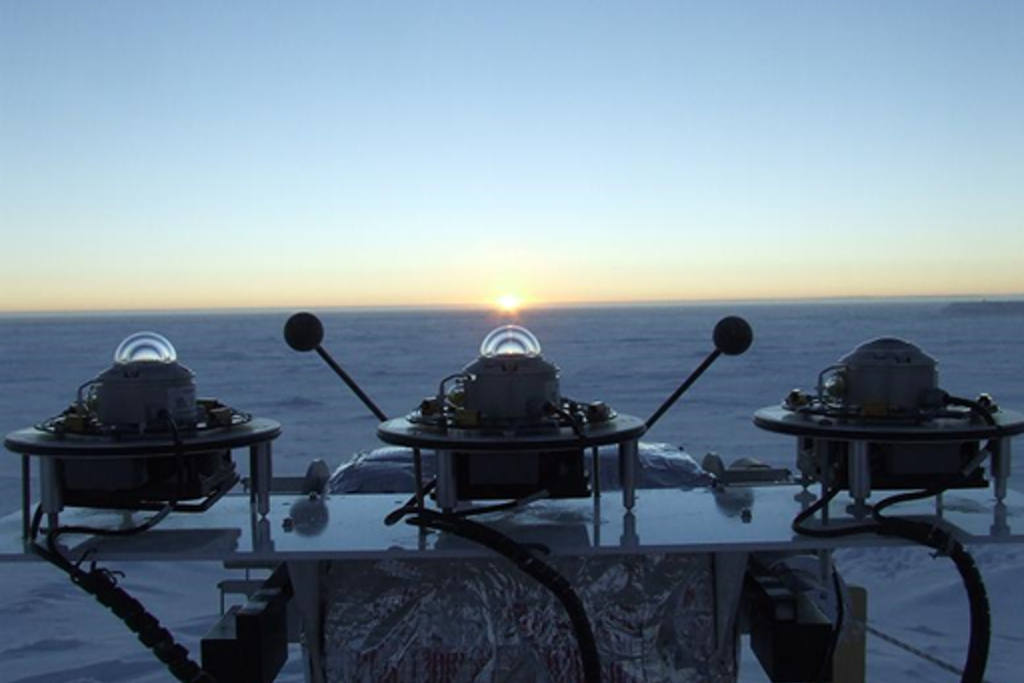
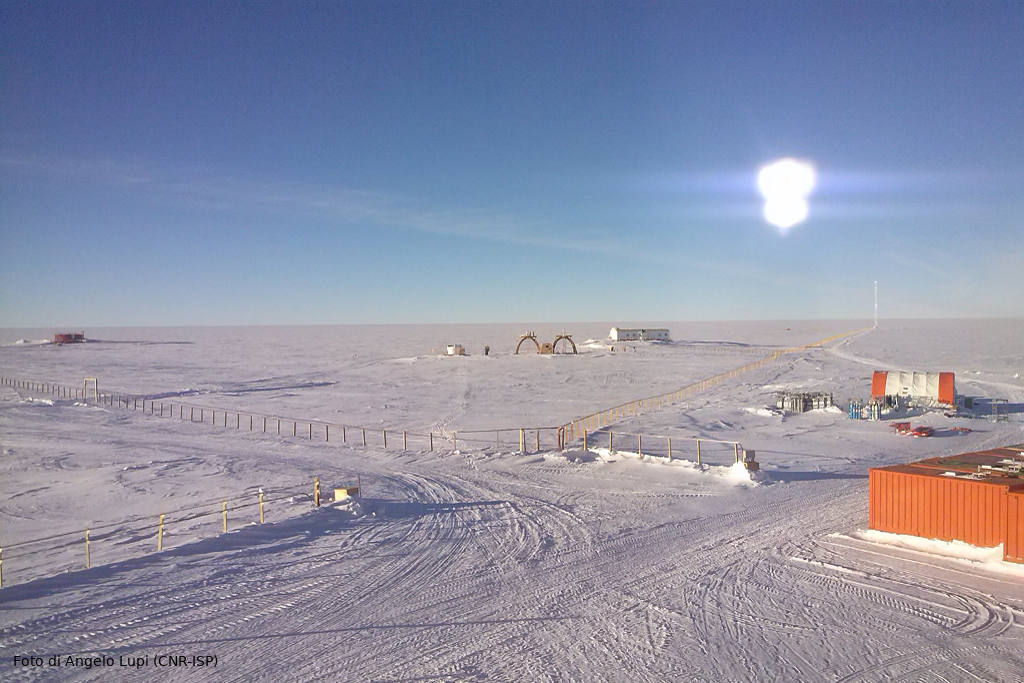
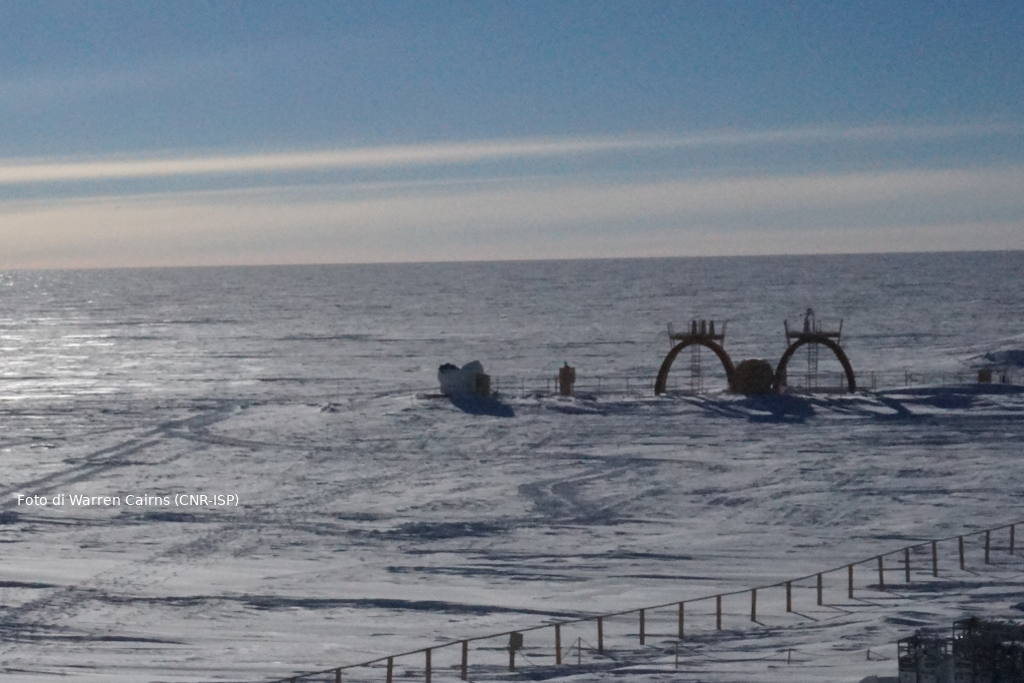
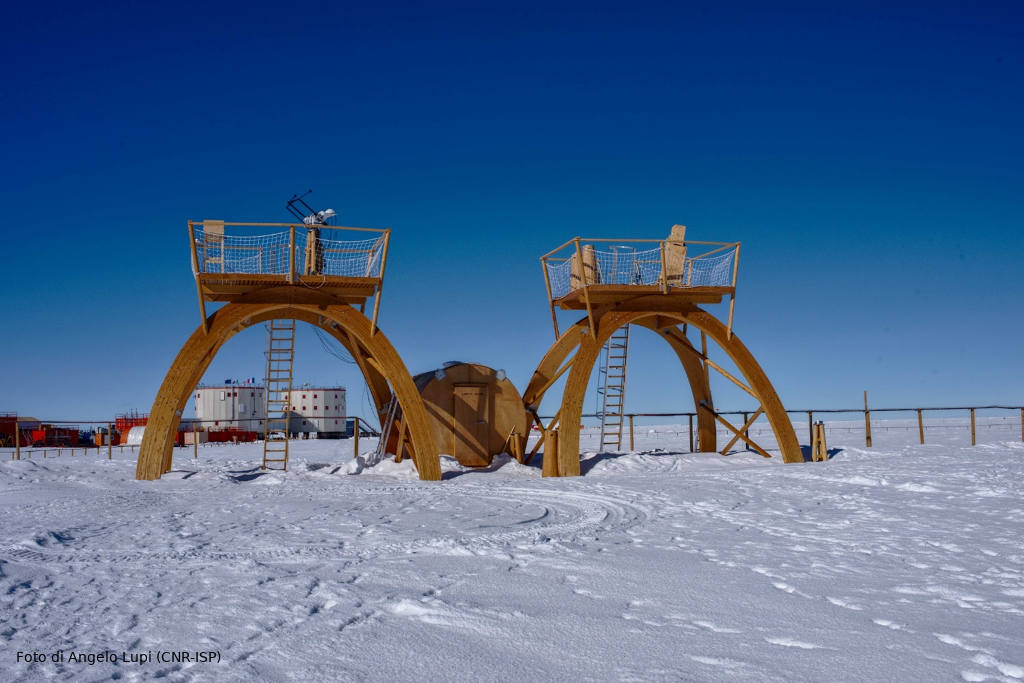






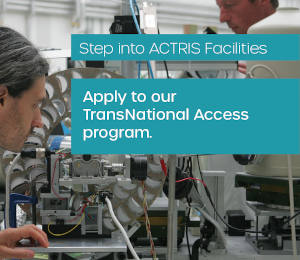 Lanciata la seconda
Lanciata la seconda  Title: Emergence of virulence and antibiotic-resistance vectors in coastal and deep sea marine environments and analysis of the mechanisms and conditions underlying their spread and evolution
Title: Emergence of virulence and antibiotic-resistance vectors in coastal and deep sea marine environments and analysis of the mechanisms and conditions underlying their spread and evolution 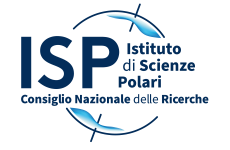 Title: Exploring and exploiting the diversity of extremely halophilic prokaryotic communities in food-grade salts and high salt-fermented food stocks
Title: Exploring and exploiting the diversity of extremely halophilic prokaryotic communities in food-grade salts and high salt-fermented food stocks 
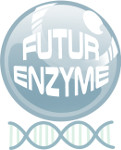 Title: Technologies of the future for low-cost enzymes for environment-friendly products
Title: Technologies of the future for low-cost enzymes for environment-friendly products 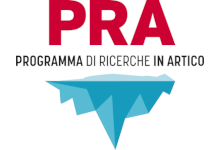 Title: Nutrient cycling, Ecosystem functioning and Climate change in Arctic lake ecosystems
Title: Nutrient cycling, Ecosystem functioning and Climate change in Arctic lake ecosystems 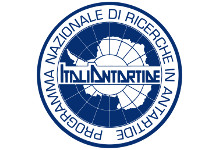 Title: PhySIcal and bioGeochemical traciNg of wATer masses at source areas and export gates in the Ross Sea and impact on the SoUtheRn OcEan
Title: PhySIcal and bioGeochemical traciNg of wATer masses at source areas and export gates in the Ross Sea and impact on the SoUtheRn OcEan 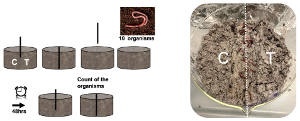
 ll 12-13 Ottobre 2021 a Gif-sur Yvette (Francia) si terrà il Beyond EPICA Science Consortia meeting. È prevista la partecipazione da remoto, almeno nelle sessioni plenarie.
ll 12-13 Ottobre 2021 a Gif-sur Yvette (Francia) si terrà il Beyond EPICA Science Consortia meeting. È prevista la partecipazione da remoto, almeno nelle sessioni plenarie. 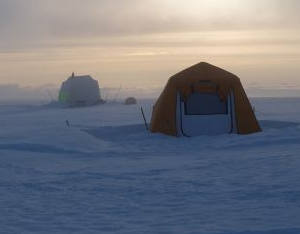
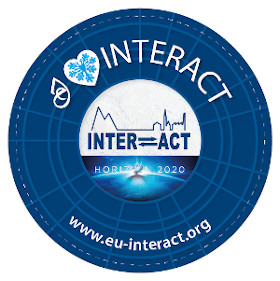
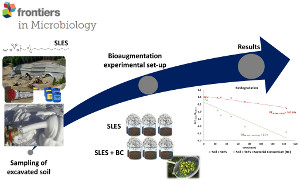
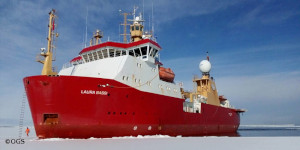
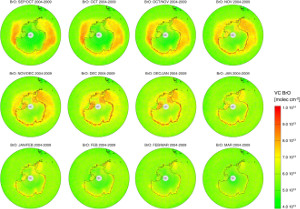
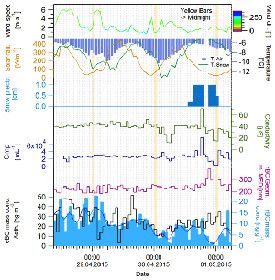
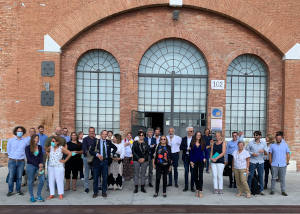
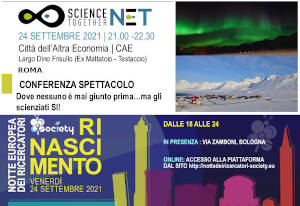
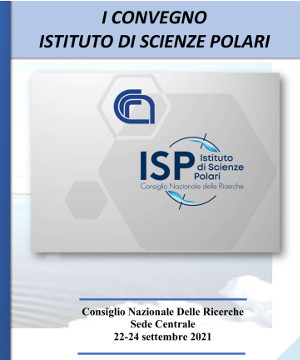


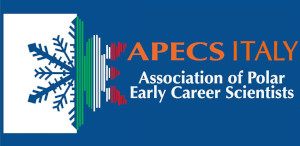 Primo appuntamento online il 16 Settembre 2021 h18.30
Primo appuntamento online il 16 Settembre 2021 h18.30 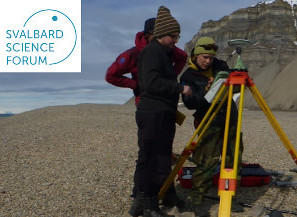 The Arctic Field Grant supports fieldwork for students and researchers collecting data in Svalbard and Jan Mayen.
The Arctic Field Grant supports fieldwork for students and researchers collecting data in Svalbard and Jan Mayen.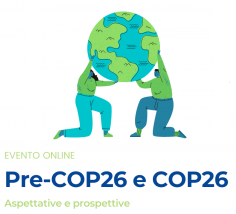 L'evento si terrà in live streaming sul
L'evento si terrà in live streaming sul 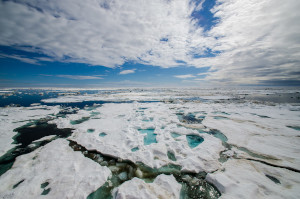 The nutrient cycle in the Arctic will be the focus when researchers from the four Ny-Ålesund flagships convene to discuss how to increase collaboration across flagships and research disciplines.
The nutrient cycle in the Arctic will be the focus when researchers from the four Ny-Ålesund flagships convene to discuss how to increase collaboration across flagships and research disciplines.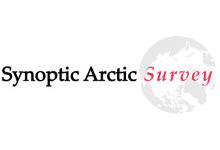 Title: AdvanCing knowledge on the present Arctic Ocean by chemical-phySical, biogeochemical and biological obServAtioNs to preDict the futuRe chAnges
Title: AdvanCing knowledge on the present Arctic Ocean by chemical-phySical, biogeochemical and biological obServAtioNs to preDict the futuRe chAnges 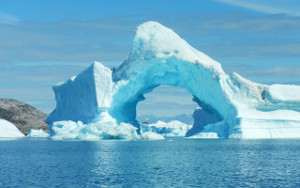 Il bando disciplina le procedure per il finanziamento, da parte del Consiglio nazionale delle ricerche (Cnr), di proposte destinate al potenziamento e sostegno delle infrastrutture di ricerca in Artico, in linea con gli obiettivi scientifici per il
Il bando disciplina le procedure per il finanziamento, da parte del Consiglio nazionale delle ricerche (Cnr), di proposte destinate al potenziamento e sostegno delle infrastrutture di ricerca in Artico, in linea con gli obiettivi scientifici per il 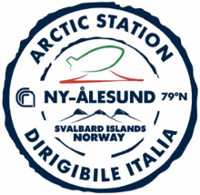 In applicazione della legge 81 sulla sicurezza nei luoghi di lavoro, ISP ha predisposto un nuovo
In applicazione della legge 81 sulla sicurezza nei luoghi di lavoro, ISP ha predisposto un nuovo 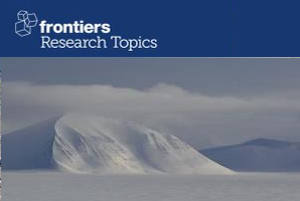
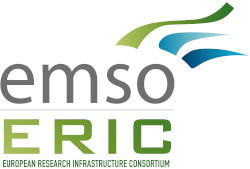
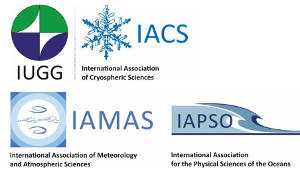
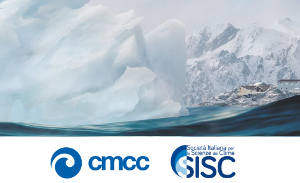 Oceano e Criosfera: traduzione italiana del report IPCC
Oceano e Criosfera: traduzione italiana del report IPCC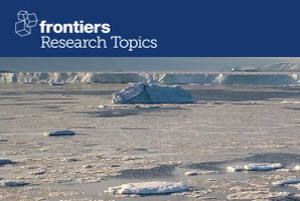
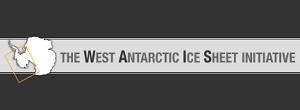 The 2021 WAIS Workshop will be a hybrid workshop, with the in-person option occuring at the Algonkian Regional Park Woodlands Conference Center in Sterling, VA.
The 2021 WAIS Workshop will be a hybrid workshop, with the in-person option occuring at the Algonkian Regional Park Woodlands Conference Center in Sterling, VA. 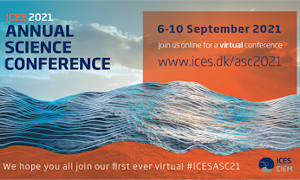
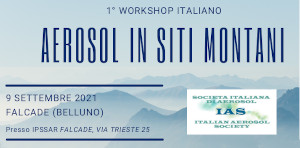
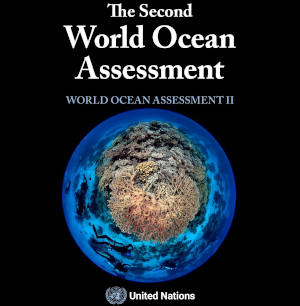
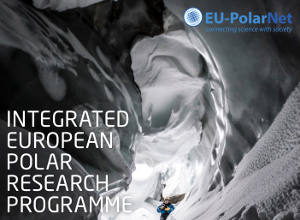 ar - How to apply for an:
ar - How to apply for an: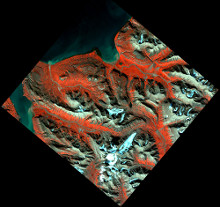 SIOS offers a training course on how to effectively use hyperspectral remote sensing data acquired from satellites, from airborne campaigns and from the ground, and their associated tools and software in the context of research in Svalbard.
SIOS offers a training course on how to effectively use hyperspectral remote sensing data acquired from satellites, from airborne campaigns and from the ground, and their associated tools and software in the context of research in Svalbard.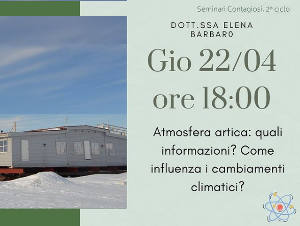
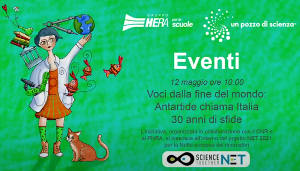

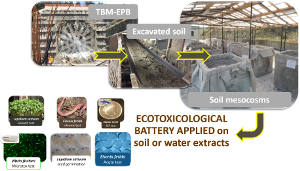
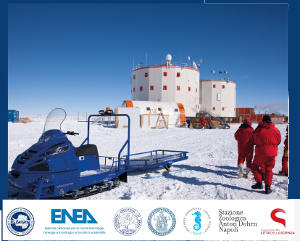 Napoli -
Napoli - 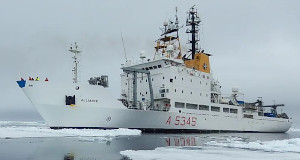
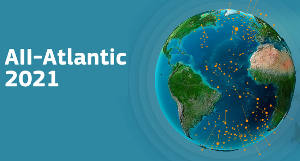 The All-Atlantic2021 – All-Atlantic R&I for a Sustainable Ocean: Ministerial High-Level & Stakeholders Conference will take place under the Portuguese Presidency of the Council of the European Union, in close cooperation with the European Commission, aiming to strengthen Research & Innovation cooperation across and along the Atlantic Ocean, from pole to pole.
The All-Atlantic2021 – All-Atlantic R&I for a Sustainable Ocean: Ministerial High-Level & Stakeholders Conference will take place under the Portuguese Presidency of the Council of the European Union, in close cooperation with the European Commission, aiming to strengthen Research & Innovation cooperation across and along the Atlantic Ocean, from pole to pole.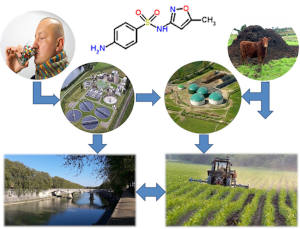
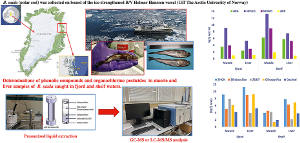
 The side event will start the Joint Action on Polar Research. The workshop shall identify challenges, best practices, and next steps for implementing cross border access to polar research facilities and infrastructure.
The side event will start the Joint Action on Polar Research. The workshop shall identify challenges, best practices, and next steps for implementing cross border access to polar research facilities and infrastructure.  Title: Studio integrato livelli organici
Title: Studio integrato livelli organici 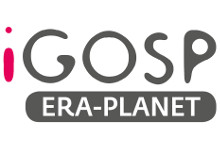 Title: Integrated Global Observing Systems for Persistent Pollutants
Title: Integrated Global Observing Systems for Persistent Pollutants 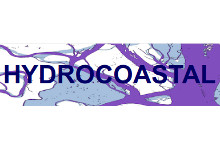 Title: Coastal ocean and inland water altimetry
Title: Coastal ocean and inland water altimetry 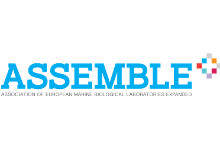 Title: AsSaYing Marine Benthic invertebrates in the Arctic for the associated BacterIal cOmmunitieS: dIversity and biotechnological potentialS
Title: AsSaYing Marine Benthic invertebrates in the Arctic for the associated BacterIal cOmmunitieS: dIversity and biotechnological potentialS  Title: SearChIng for EmeRging Contaminants in Sub-Arctic rivErs
Title: SearChIng for EmeRging Contaminants in Sub-Arctic rivErs 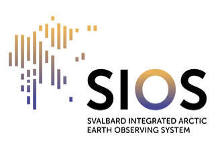 Title: Atmospheric Black Carbon in Svalbard
Title: Atmospheric Black Carbon in Svalbard 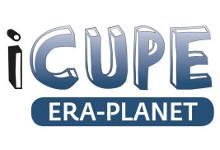 Title: Integrative and Comprehensive Understanding on Polar Environments
Title: Integrative and Comprehensive Understanding on Polar Environments  Title: Mechanisms of red tides and hypoxia as ecological marine disasters and technologies for its early warning along the Belt and Road Countries
Title: Mechanisms of red tides and hypoxia as ecological marine disasters and technologies for its early warning along the Belt and Road Countries 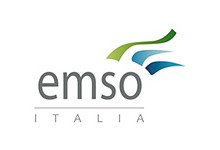 Title: European Multidisciplinary Seafloor and water column Observatory tramite Joint Research Unit di EMSO Italia
Title: European Multidisciplinary Seafloor and water column Observatory tramite Joint Research Unit di EMSO Italia 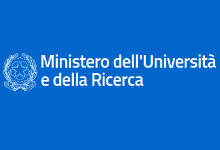 Title: Destino del permAFrost duraNte le tErminazioni glaciali
Title: Destino del permAFrost duraNte le tErminazioni glaciali  In occasione dell'
In occasione dell'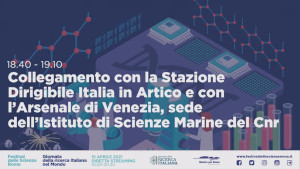
 Venerdì 16 aprile alle 18:30 per Stampa e scienza... quasi amiche evento: Una ricerca polare, la nuova diretta Facebook dedicata alla ricerca del Cnr ai due estremi del mondo: Artide e Antartide. Protagonisti di questa puntata sono la giornalista Giulia Apollonio, Tg2 Rai, e Carlo Barbante, direttore del CNR-ISP.
Venerdì 16 aprile alle 18:30 per Stampa e scienza... quasi amiche evento: Una ricerca polare, la nuova diretta Facebook dedicata alla ricerca del Cnr ai due estremi del mondo: Artide e Antartide. Protagonisti di questa puntata sono la giornalista Giulia Apollonio, Tg2 Rai, e Carlo Barbante, direttore del CNR-ISP.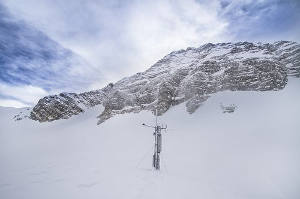
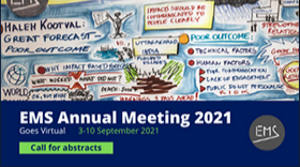 L'Annual Meeting of the European Meteorological Society–European Conference for Applied Meteorology and Climatology 2021, si svolgerà quest'anno come evento online.
L'Annual Meeting of the European Meteorological Society–European Conference for Applied Meteorology and Climatology 2021, si svolgerà quest'anno come evento online. 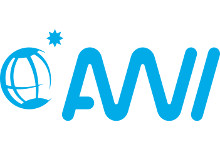 Title: Chronologies for Polar Paleoclimate Archives – Italian-German Partnership
Title: Chronologies for Polar Paleoclimate Archives – Italian-German Partnership 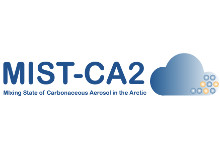 Title: Quantification of the Mixing state of Carbonaceous Aerosol in the Arctic
Title: Quantification of the Mixing state of Carbonaceous Aerosol in the Arctic  Title: Analysis of Light absorbing PArticles: linking Cryosphere to Atmosphere
Title: Analysis of Light absorbing PArticles: linking Cryosphere to Atmosphere 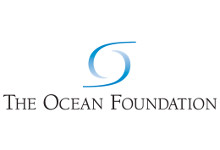 Title: Transforming Mediterranean Small-Scale Fisheries
Title: Transforming Mediterranean Small-Scale Fisheries 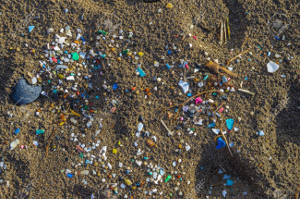
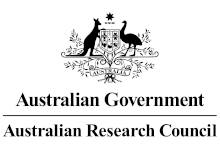 Title:Deep-sea coral records of Southern Ocean climate and nutrient dynamics
Title:Deep-sea coral records of Southern Ocean climate and nutrient dynamics  Title: ICE MEMORY
Title: ICE MEMORY 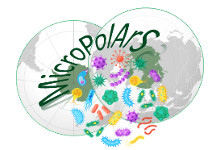 Title: Microbial response to human Pollutants in polAr lakeS
Title: Microbial response to human Pollutants in polAr lakeS 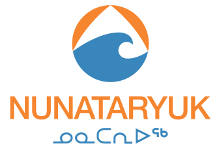 Title: Nunataryuk
Title: Nunataryuk 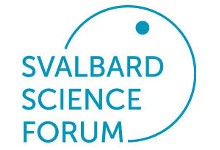 Title: Re-evaluation and Homogenization of Aerosol Optical Depth Observations in Svalbard
Title: Re-evaluation and Homogenization of Aerosol Optical Depth Observations in Svalbard 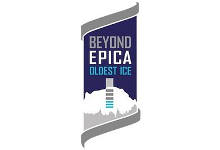
 Title: Origin and physiological consequences of a neoplasm outbreak in Antarctic fish
Title: Origin and physiological consequences of a neoplasm outbreak in Antarctic fish 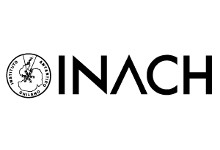
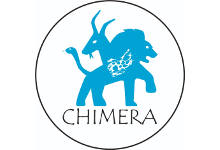
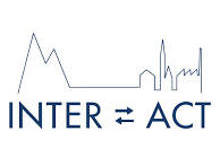 Title: Benthic filter-feeding Invertebrates from the Arctic as accumulators of Pollutants and tolerant bacterial communities (
Title: Benthic filter-feeding Invertebrates from the Arctic as accumulators of Pollutants and tolerant bacterial communities (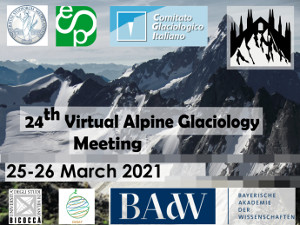
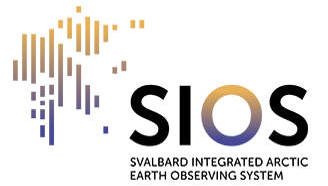 The SIOS Data Mangement System Working group (
The SIOS Data Mangement System Working group (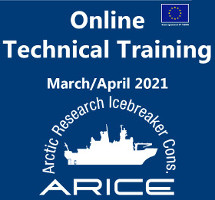 The online technical training series organized by the
The online technical training series organized by the A special issue of
A special issue of 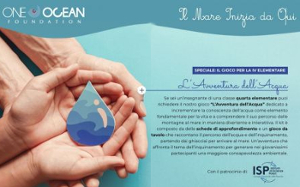 L'Istituto di scienze polari (CNR-ISP) patrocina l'iniziativa di
L'Istituto di scienze polari (CNR-ISP) patrocina l'iniziativa di 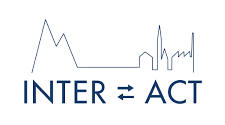 Workshop on International Access to Research Infrastructure in the Arctic at
Workshop on International Access to Research Infrastructure in the Arctic at 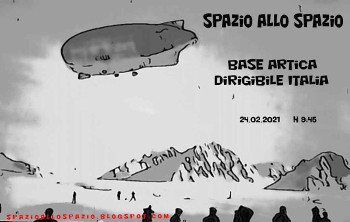
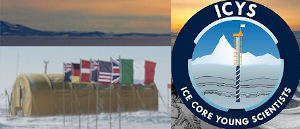
 l Prof. Sergej Seergevich Zilitinkevich è venuto a mancare il 16 febbraio. Il suo eccezionale contributo alla turbolenza dei fluidi geofisici segnerà una pietra miliare nelle scienze dell'atmosfera e dell'oceano e continuerà ad essere un faro per gli studi sull'atmosfera e sui mari nelle regioni polari.
l Prof. Sergej Seergevich Zilitinkevich è venuto a mancare il 16 febbraio. Il suo eccezionale contributo alla turbolenza dei fluidi geofisici segnerà una pietra miliare nelle scienze dell'atmosfera e dell'oceano e continuerà ad essere un faro per gli studi sull'atmosfera e sui mari nelle regioni polari. 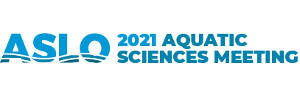 Sessione:
Sessione:  Member positions are opening in the leadership group of the SOOS Amundsen and Bellingshausen Sector Regional Working Group.
Member positions are opening in the leadership group of the SOOS Amundsen and Bellingshausen Sector Regional Working Group.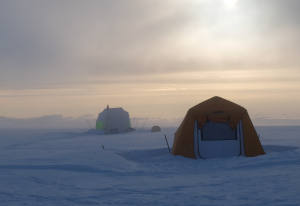
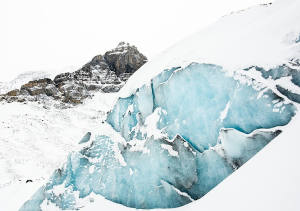
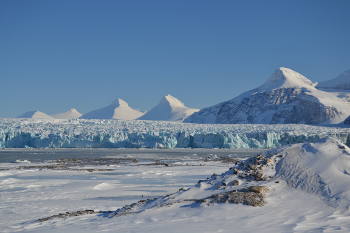 Procedura per la presentazione di progetti di ricerca rivolti ad approfondire le conoscenze dell'ambiente Artico.
Procedura per la presentazione di progetti di ricerca rivolti ad approfondire le conoscenze dell'ambiente Artico. 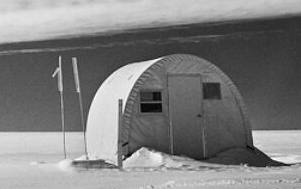
 Nicoletta
Nicoletta  Warren Raymond Lee
Warren Raymond Lee  Angelina
Angelina  Chiara
Chiara  Vito
Vito 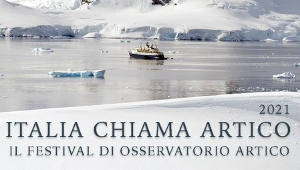 Il primo festival online dedicato alla regione polare
Il primo festival online dedicato alla regione polare 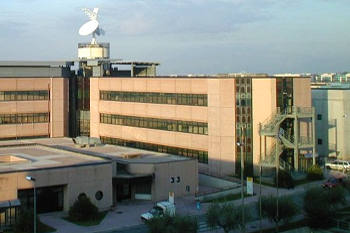

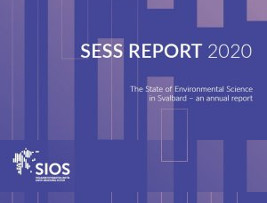 The State of Environmental Science in Svalbard
The State of Environmental Science in Svalbard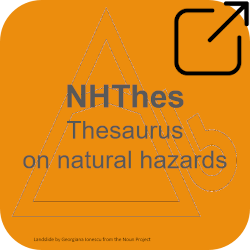
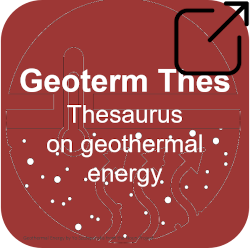

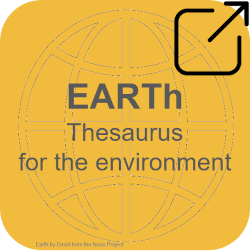
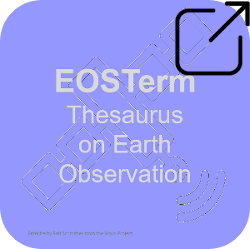
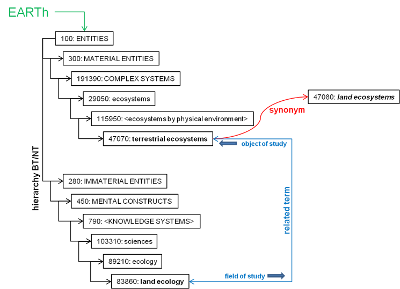
 A special issue of
A special issue of  Dal 10 dicembre ore 10.00 al 13 dicembre ore 22.00
Dal 10 dicembre ore 10.00 al 13 dicembre ore 22.00 Webinar, organizzato in collaborazione con ENLIT Europe, “Spotlight on Canada: the Digitalisation of the energy sector” in programma il 2 dicembre 2020 alle ore 16:00 CET.
Webinar, organizzato in collaborazione con ENLIT Europe, “Spotlight on Canada: the Digitalisation of the energy sector” in programma il 2 dicembre 2020 alle ore 16:00 CET. 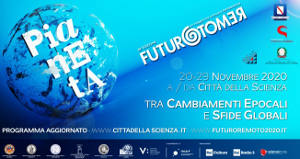 Fa troppo caldo per il ghiaccio - 23 novembre ore 9.00 - 10.00, per scuole e università, con Renato Colucci, ricercatore ISP
Fa troppo caldo per il ghiaccio - 23 novembre ore 9.00 - 10.00, per scuole e università, con Renato Colucci, ricercatore ISP  Celebrating Antarctica: climate change, biodiversity, and science
Celebrating Antarctica: climate change, biodiversity, and science




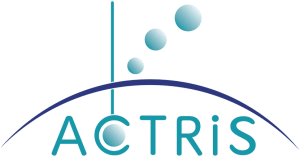

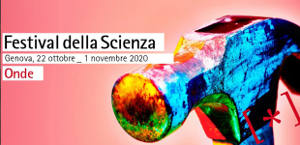 Antartide: la prima spedizione del CNR (1968-1969)
Antartide: la prima spedizione del CNR (1968-1969)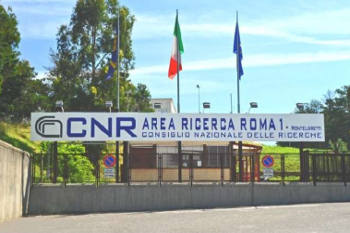


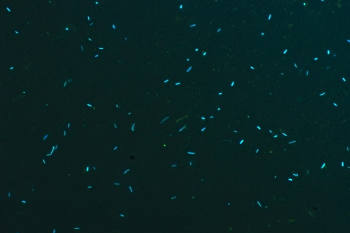 Brief description
Brief description 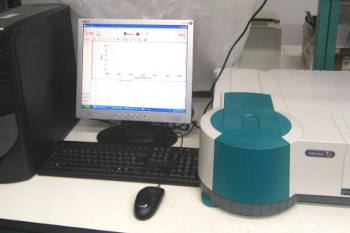 Brief description
Brief description 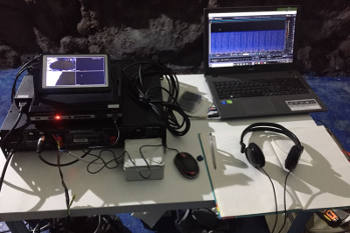 Short description
Short description
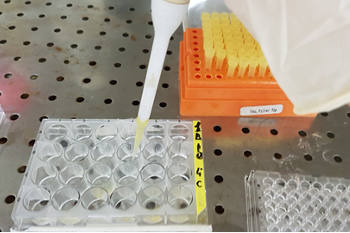 Short description
Short description 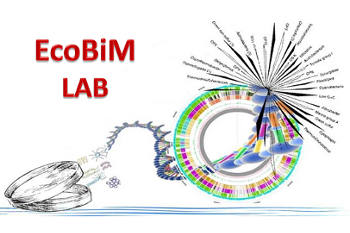 Brief description
Brief description 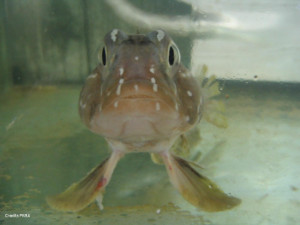
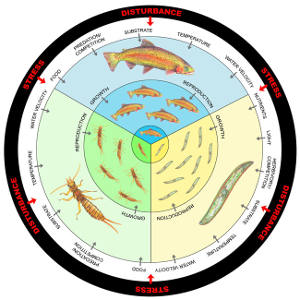
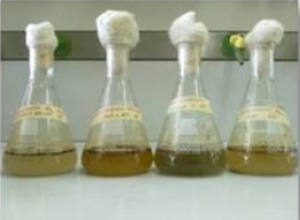 Deeper understanding of biological processes and recent advances in biotechnology allow us to use the natural world to progress in various industries, such as in the development of drugs and food additives. In general, the term bioprospecting is used to indicate the exploration of living beings and biological materials for biomolecules that may be useful to humans. In this field, poorly known or poorly described genetic resources have a great potential for the discovery of new and valuable natural products. Therefore, polar organisms, given their unusual metabolic abilities and physiological adaptations to extreme environmental conditions, are well suited for this purpose. Furthermore, the possible future potential of polar organisms in of the bioremediation of pollutants, even persistent ones, at low temperatures should not be overlooked.
Deeper understanding of biological processes and recent advances in biotechnology allow us to use the natural world to progress in various industries, such as in the development of drugs and food additives. In general, the term bioprospecting is used to indicate the exploration of living beings and biological materials for biomolecules that may be useful to humans. In this field, poorly known or poorly described genetic resources have a great potential for the discovery of new and valuable natural products. Therefore, polar organisms, given their unusual metabolic abilities and physiological adaptations to extreme environmental conditions, are well suited for this purpose. Furthermore, the possible future potential of polar organisms in of the bioremediation of pollutants, even persistent ones, at low temperatures should not be overlooked.
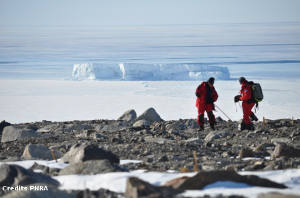
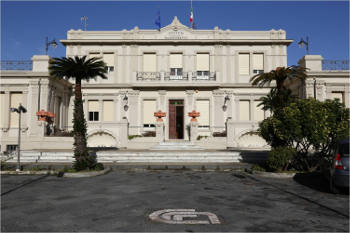
 A special issue of
A special issue of 

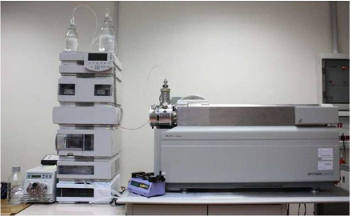
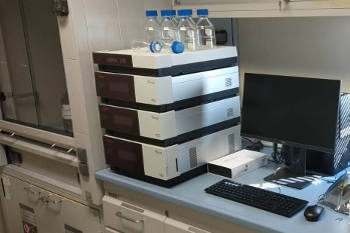
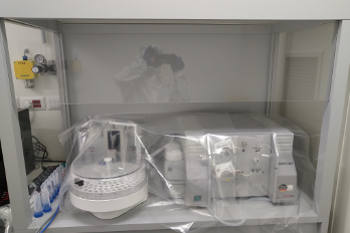
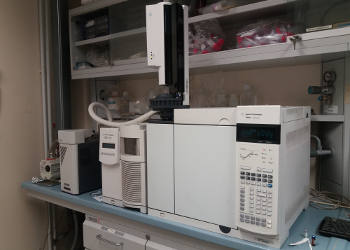
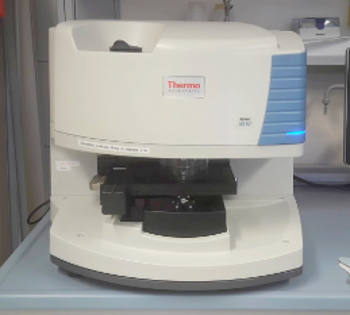
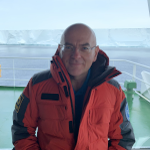





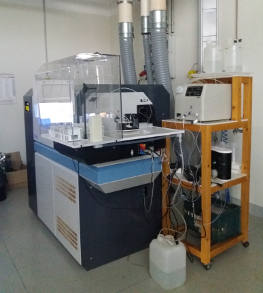
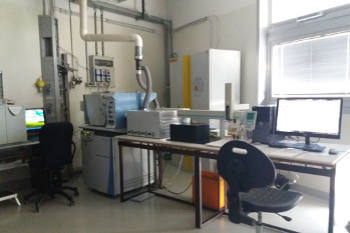
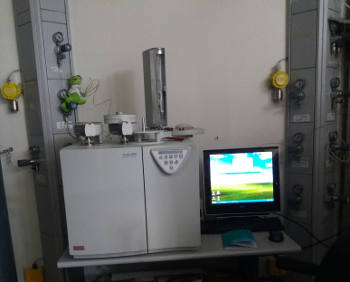

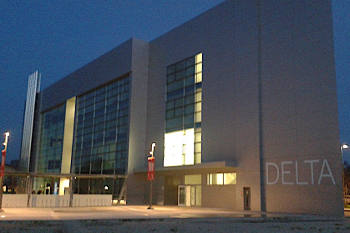
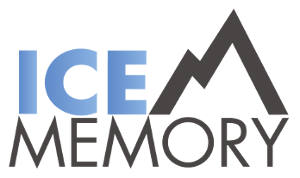
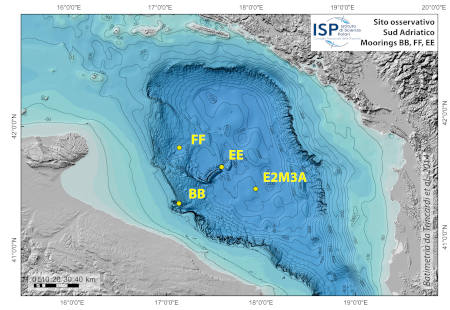
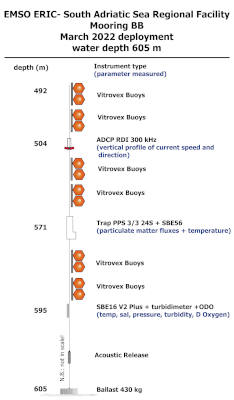
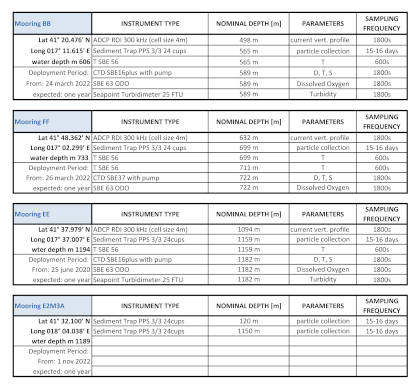
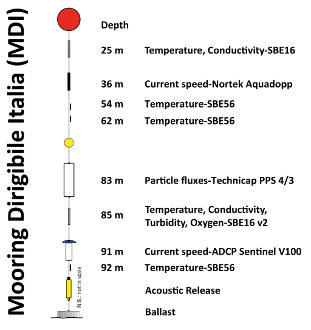
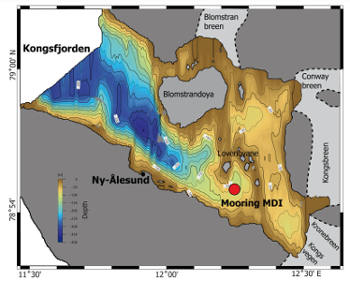
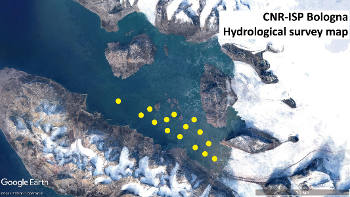



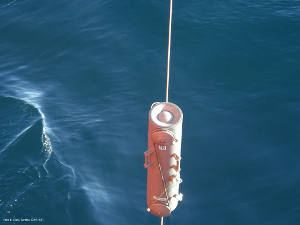
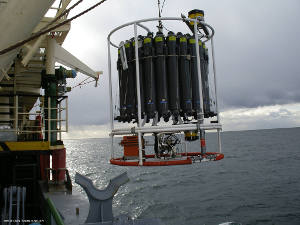
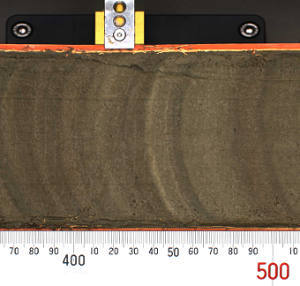
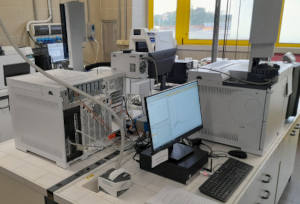








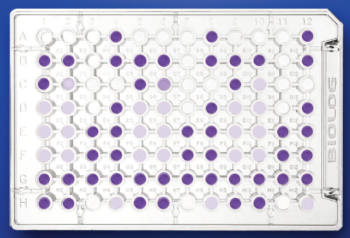
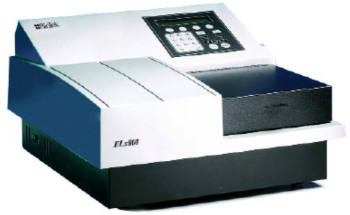 The BioChem Lab is equipped with the following analytical tools:
The BioChem Lab is equipped with the following analytical tools: 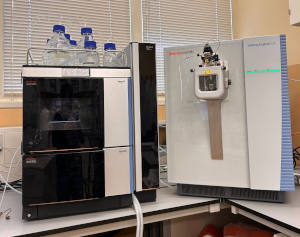
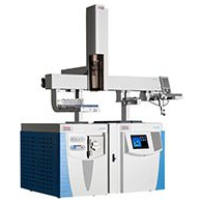 Rotavapor R 100 (Buchi), equipped with an electronic interface to control the vacuum system and the recirculating chiller.
Rotavapor R 100 (Buchi), equipped with an electronic interface to control the vacuum system and the recirculating chiller. 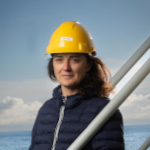 Institute of Polar Science (CNR-ISP)
Institute of Polar Science (CNR-ISP) 



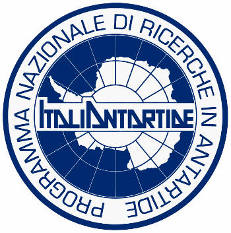 Since its first expeditions in 1968, 1973 and 1978, the CNR has strongly supported the diplomatic action of the MAECI (Ministry of Foreign Affairs and International Cooperation) which led to the accession of Italy to the Antarctic Treaty. The CNR initially contributed to identifying the construction site of the Italian station Mario Zucchelli and is currently coordinating the different lines of scientific activity of the National Research Program in Antarctica (PNRA). The implementation of research in Antarctica is carried out by the national scientific community, of which 51% are university research groups, 23% CNR research groups, 9% from INGV, 5% from ENEA, 4 % from OGS and INAF and the remaining 4 % is carried out by other institutions. The scientific priorities identified within the framework of the National Research Program in Antarctica, are mostly multidisciplinary, and can be traced around the following topics: dynamics of the atmosphere and climate processes, dynamics of the polar ice cap, solid earth dynamics, polar ocean dynamics, Sun-Earth relationships and space-weather, the universe above Antarctica, evolution, adaptation and biodiversity, humankind in extreme environments, environmental contamination, paleoclimate, environmental issues and risks, as well as technology: innovation and experimentation. In many of these research areas, the CNR’s activity, thanks to its research network, is at an excellent level, although it is still fragmented into numerous institutes belonging to various departments.
Since its first expeditions in 1968, 1973 and 1978, the CNR has strongly supported the diplomatic action of the MAECI (Ministry of Foreign Affairs and International Cooperation) which led to the accession of Italy to the Antarctic Treaty. The CNR initially contributed to identifying the construction site of the Italian station Mario Zucchelli and is currently coordinating the different lines of scientific activity of the National Research Program in Antarctica (PNRA). The implementation of research in Antarctica is carried out by the national scientific community, of which 51% are university research groups, 23% CNR research groups, 9% from INGV, 5% from ENEA, 4 % from OGS and INAF and the remaining 4 % is carried out by other institutions. The scientific priorities identified within the framework of the National Research Program in Antarctica, are mostly multidisciplinary, and can be traced around the following topics: dynamics of the atmosphere and climate processes, dynamics of the polar ice cap, solid earth dynamics, polar ocean dynamics, Sun-Earth relationships and space-weather, the universe above Antarctica, evolution, adaptation and biodiversity, humankind in extreme environments, environmental contamination, paleoclimate, environmental issues and risks, as well as technology: innovation and experimentation. In many of these research areas, the CNR’s activity, thanks to its research network, is at an excellent level, although it is still fragmented into numerous institutes belonging to various departments. 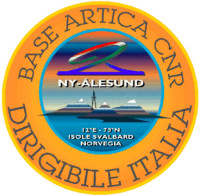 The Italian presence in the Arctic became permanent in the mid-nineties, thanks to the opening of the CNR station in the Svalbard Islands. In recent years, the interests of the Italian scientific community have been extended to other remote areas such as Greenland, areas of the Arctic Ocean, the Tibetan plateau and the Himalayas. In addition to the CNR, OGS, ENEA, INGV, INAF, ASI and some universities carry out research activities in these areas. In addition, Italy has strong economic interests in the Arctic with numerous industries that are active in this area, including ENI, Finmeccanica, Telespazio, E-geos, and Fincantieri. Since 1997 the has CNR carried out research in Ny-Ålesund in cooperation with national and international universities and other scientific institutions. The topics include climate, manmade pollution, instability of the ozone layer, the physical properties of aerosols and clouds in their role in radiation balances, ecology, genetics, physiology, biochemistry and the molecular and cellular biology of polar organisms, the optical properties of glacial surfaces, geochemistry, environment and permafrost, oceanography aimed at studying the transfer of energy and matter in relation to glacial coverage and, finally, historical and geographical studies that evaluate the Italian contribution to polar exploration and research. Recently there has been an intensification in the study of legal issues of specific to the Arctic with advice given to the Ministry of Foreign Affairs within the framework of the Arctic round table.
The Italian presence in the Arctic became permanent in the mid-nineties, thanks to the opening of the CNR station in the Svalbard Islands. In recent years, the interests of the Italian scientific community have been extended to other remote areas such as Greenland, areas of the Arctic Ocean, the Tibetan plateau and the Himalayas. In addition to the CNR, OGS, ENEA, INGV, INAF, ASI and some universities carry out research activities in these areas. In addition, Italy has strong economic interests in the Arctic with numerous industries that are active in this area, including ENI, Finmeccanica, Telespazio, E-geos, and Fincantieri. Since 1997 the has CNR carried out research in Ny-Ålesund in cooperation with national and international universities and other scientific institutions. The topics include climate, manmade pollution, instability of the ozone layer, the physical properties of aerosols and clouds in their role in radiation balances, ecology, genetics, physiology, biochemistry and the molecular and cellular biology of polar organisms, the optical properties of glacial surfaces, geochemistry, environment and permafrost, oceanography aimed at studying the transfer of energy and matter in relation to glacial coverage and, finally, historical and geographical studies that evaluate the Italian contribution to polar exploration and research. Recently there has been an intensification in the study of legal issues of specific to the Arctic with advice given to the Ministry of Foreign Affairs within the framework of the Arctic round table. 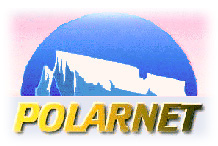 On December 6th, 2006, the CNR, with the
On December 6th, 2006, the CNR, with the 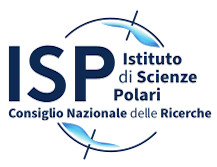 Italian researchers involved in research in polar areas and other remote areas of the planet are involved in highly interdisciplinary research in life sciences, Earth and climate sciences, marine sciences, atmospheric and space sciences, in addition to technological innovation. But national research in polar areas has often been very fragmented and scarcely visible in an international context, because, although carried out within highly qualified research groups, they have so far only been individually recognizable and not associated with a national structure.
Italian researchers involved in research in polar areas and other remote areas of the planet are involved in highly interdisciplinary research in life sciences, Earth and climate sciences, marine sciences, atmospheric and space sciences, in addition to technological innovation. But national research in polar areas has often been very fragmented and scarcely visible in an international context, because, although carried out within highly qualified research groups, they have so far only been individually recognizable and not associated with a national structure. 







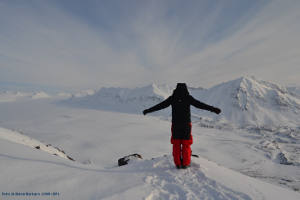
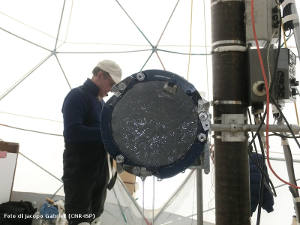
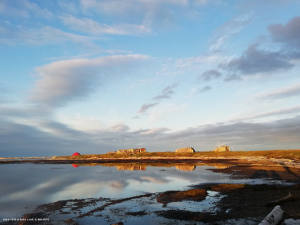
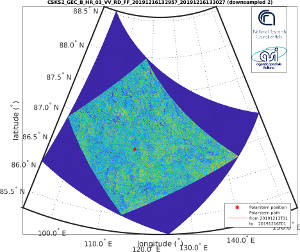
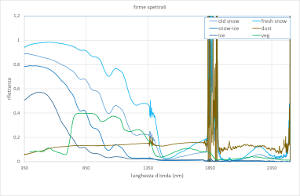



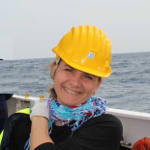







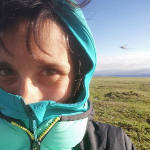


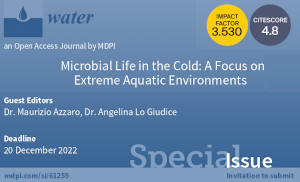 A special issue of Water (ISSN 2073-4441)
A special issue of Water (ISSN 2073-4441)
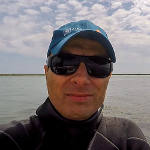






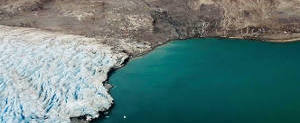






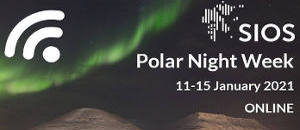 The third #PolarNightWeek for and with the #SIOS community will be held online, 11-15 January 2021.
The third #PolarNightWeek for and with the #SIOS community will be held online, 11-15 January 2021.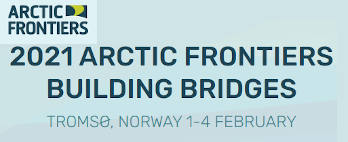 Arctic Frontiers Science 2021
Arctic Frontiers Science 2021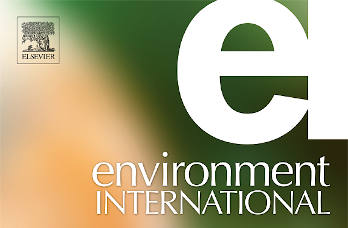 Pubblicato sul sito web della rivista internazionale Environment International lo
Pubblicato sul sito web della rivista internazionale Environment International lo  A special issue of
A special issue of 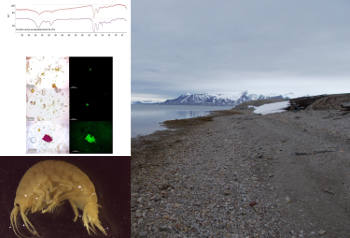
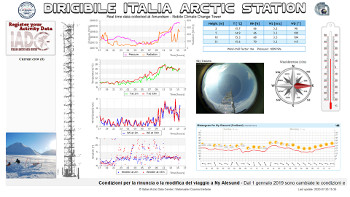
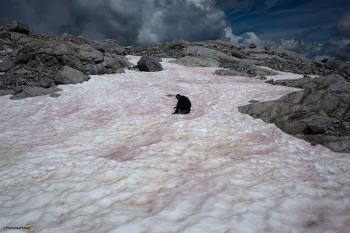
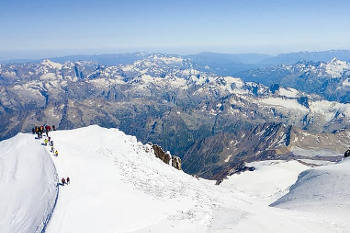
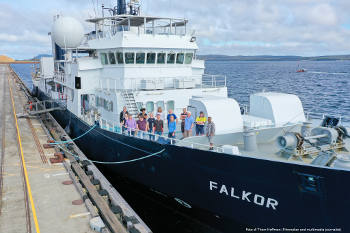
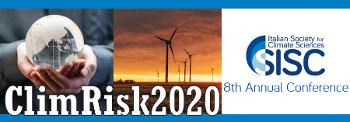
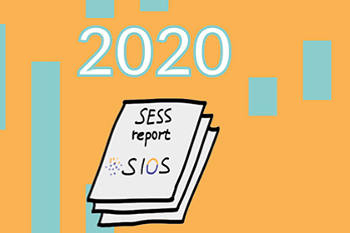 The call for contributions to the 2nd SESS report is open
The call for contributions to the 2nd SESS report is open  The PhD programme in
The PhD programme in 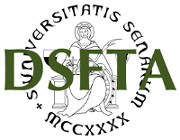 Il Dottorato ha sede presso le strutture del Dipartimento di Scienze Fisiche, della Terra e dell’Ambiente dell’Università degli Studi di Siena.
Il Dottorato ha sede presso le strutture del Dipartimento di Scienze Fisiche, della Terra e dell’Ambiente dell’Università degli Studi di Siena. 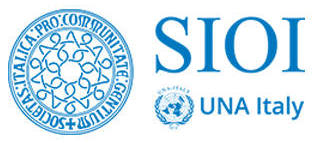 La Società Italiana per l'Organizzazione Internazionale (
La Società Italiana per l'Organizzazione Internazionale ( L'Ecosistema lagunare con Luigi Cavaleri, oceanografo all’ISMAR-CNR, Fabiana Corami, biologa, Istituto di Scienze Polari del CNR (CNR-ISP); e Beatrice Rosso, ricercatrice, Dipartimento di Scienze Ambientali, Informatica e Statistica dell’Università Ca’ Foscari.
L'Ecosistema lagunare con Luigi Cavaleri, oceanografo all’ISMAR-CNR, Fabiana Corami, biologa, Istituto di Scienze Polari del CNR (CNR-ISP); e Beatrice Rosso, ricercatrice, Dipartimento di Scienze Ambientali, Informatica e Statistica dell’Università Ca’ Foscari. 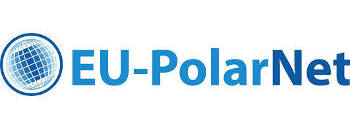 Conferences and workshops
Conferences and workshops 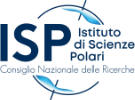 Dove:
Dove: 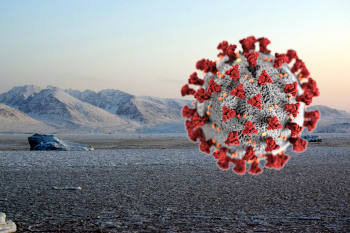
 The Svalbard Strategic Grant is a seed money program aimed at advancing coordination, collaboration and data sharing between researchers with a relevance to Svalbard.
The Svalbard Strategic Grant is a seed money program aimed at advancing coordination, collaboration and data sharing between researchers with a relevance to Svalbard.
 De Agostini Scuola, in collaborazione con il CNR, celebra la giornata internazionale della Terra con un viaggio dal Polo Sud al Polo Nord della Terra, alla scoperta della salute del nostro pianeta.
De Agostini Scuola, in collaborazione con il CNR, celebra la giornata internazionale della Terra con un viaggio dal Polo Sud al Polo Nord della Terra, alla scoperta della salute del nostro pianeta. 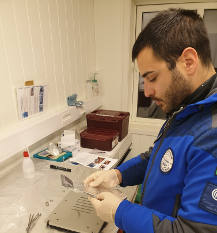
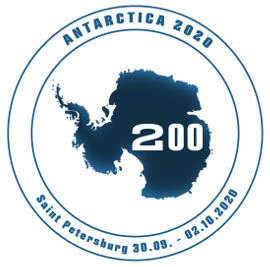


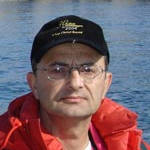



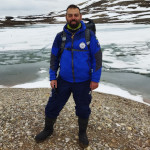

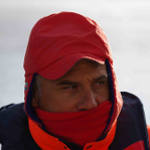



 Università Ca’ Foscari - Venezia
Università Ca’ Foscari - Venezia
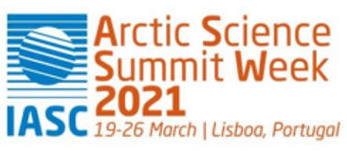 Framed by the overarching theme for the Science Conference The Arctic: Regional Changes, Global Impacts, Lisbon invites International experts on the Arctic and Indigenous Peoples to discuss the “New Arctic” and also its impacts and interactions to and with the lower latitudes.
Framed by the overarching theme for the Science Conference The Arctic: Regional Changes, Global Impacts, Lisbon invites International experts on the Arctic and Indigenous Peoples to discuss the “New Arctic” and also its impacts and interactions to and with the lower latitudes.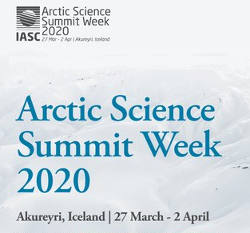
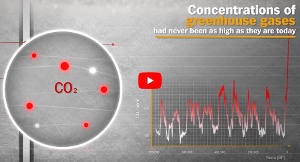
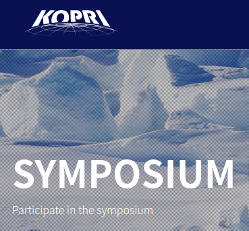 The 26th International Symposium on Polar Sciences
The 26th International Symposium on Polar Sciences 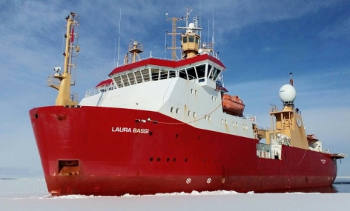
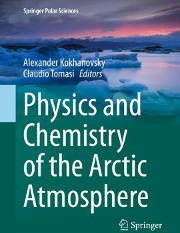
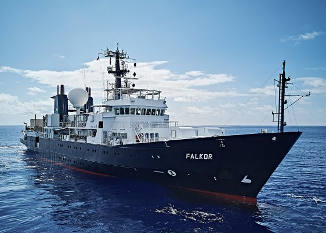
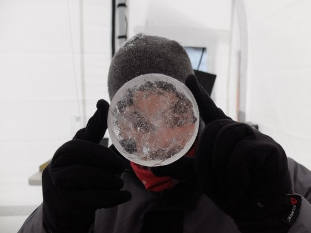
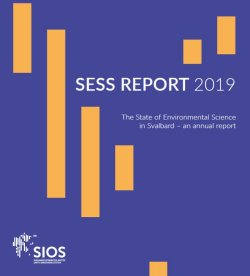
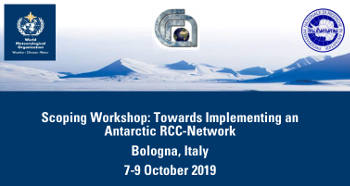 Scoping Workshop: Toward Implementing an Antarctic RCC-Network
Scoping Workshop: Toward Implementing an Antarctic RCC-Network 